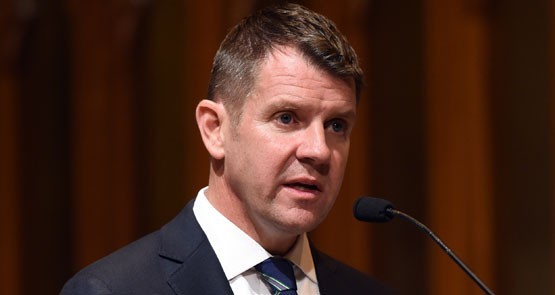
NSW Parliament will receive today an explosive report from the inspector of the Independent Commission Against Corruption, David Levine QC, bucketing ICAC. It will amount to a vote of no confidence in ICAC by the statutory officeholder whose job is to watch over the watchdog.
Levine’s voluminous report, the result of a five-month investigation, covers the failed bid by ICAC to stage public hearings into alleged misconduct by NSW deputy Crown prosecutor Margaret Cunneen SC.
At the commission, the Cunneen probe was called “Operation Hale”.
The High Court of Australia stopped ICAC from launching a corruption inquiry into Cunneen, and the director of public prosecutions subsequently dropped the possibility of any charges being brought against her.
Cunneen continues her role as a senior Crown prosecutor despite the swirling controversy, and she has been voted onto the NSW Bar Council by her supporters.
As the Cunneen controversy swept through the legal fraternity, the media and the political class, the role of ICAC commissioner Megan Latham hit the front pages too.
Her comments at a Bar Association workshop for budding advocates on February 25, 2014, drew hostile fire, particularly her remark that interrogating witnesses at ICAC hearings was “like pulling wings off butterflies”.
As a result, the ICAC inspector’s office received 14 official complaints, including Liberal MPs and coal mining executives who shared bitter experiences at the hands of the commission. A selection of the written complaints were reproduced in Levine’s 2014-15 report to Parliament.
Today’s special report by Levine — to be released after Crikey’s deadline — is unprecedented. No previous ICAC inspector has used the act’s sweeping powers to investigate the commission itself.
One of the inspector’s principal functions is to “deal with complaints of abuse of power, impropriety and other forms of misconduct on the part of the Commission or officers of the Commission”.
Crikey understands that Levine’s investigation has reached the conclusion that misconduct has occurred. It is believed that he has found that search warrants were obtained improperly and illegally enforced, and that some officers did not conduct their inquiries according to the principles of natural justice.
In August, when Levine appeared before Parliament’s joint ICAC committee, he was asked by Liberal MP Damien Tudehope what method he was using to investigate Operation Hale.
Levine replied: “Asking for everything that I can have from the ICAC. And I add that it was been provided, save for the telephone intercepts — if they exist.”
Tudehope, MP for Epping: “I take it you have formed some preliminary views in respect of the manner in which that matter [Operation Hale] was conducted?”
Levine: “Yes.”
Tudehope: “Are you able to share those with us?”
Levine: “No, I would prefer not to.”
Under Section 57C of the ICAC Act, Levine has the power to refer any wrongdoing by anti-corruption staff to the police or the DPP for further action, and he can also “recommend disciplinary action or criminal prosecution against officers of the Commission”.
As the minister responsible for ICAC, Premier Mike Baird will have to respond, and the choices are grim. Does he replace Levine as ICAC inspector or Megan Latham as ICAC commissioner? Or does he call for a root-and-branch renovation of ICAC’s administration?
In the face of Levine’s blistering critique, what he can’t do is nothing.








Baird has no problem. ICAC was his problem and now he has the justification to get rid of it. Come on, nobody could really believe politicians want oversight of their perks and side benefits of power. Does anyone actually think represetitive democracy wont be gamed by those who want their snouts in the trough.
Is Travers still corrupt..does the finding still stand even though the case has been sidelined ?
A QC damning a commission that has the power to look into every shonky deal in the state? Sounds about right. Let’s get back to the good old days of perverting the course of justice is always down to bikies and unionists.
My reading of the Irvine report is that its style gives it away. The jokey way it hurls derision at ICAC is in my view indefensible. That the ICAC was clumsy and heavy handed there is no question. Would that concern me in most cases? Not at all as long as they got results. The key question here is the process by which a borderline issue which could have been handled by the legal system was progressed into “Operation Hale”.
I currently have submitted an allegation to the ICAC, a case in which a NSW government minister may have improperly exercised their official functions in a partial manner. The ramifications of which are very serious for the state of NSW. I am very concerned that such allegations “that a government minister may have improperly exercised their official functions in a partial manner” whilst currently within the ICAC legislation are going to be the mostly likely casualty of a review like this.
We need to remember that the ICAC isn’t just there to catch the Eddie Obeid’s of this world but to stop actions that may not even be corrupt in the general sense but which allow executive powers to be dangerously overreached.
In the long run anything which removes limitations on executive power is setting an extremely dangerous precedent.
My deep concern is that a by-product of the Irvine report will be a green light for shoddy (shoddier?) government.
The usual suspects are coasting along in their usual equivalent of intellectually neutral gear.
But like Sunday Drivers they’re probably enjoying it.